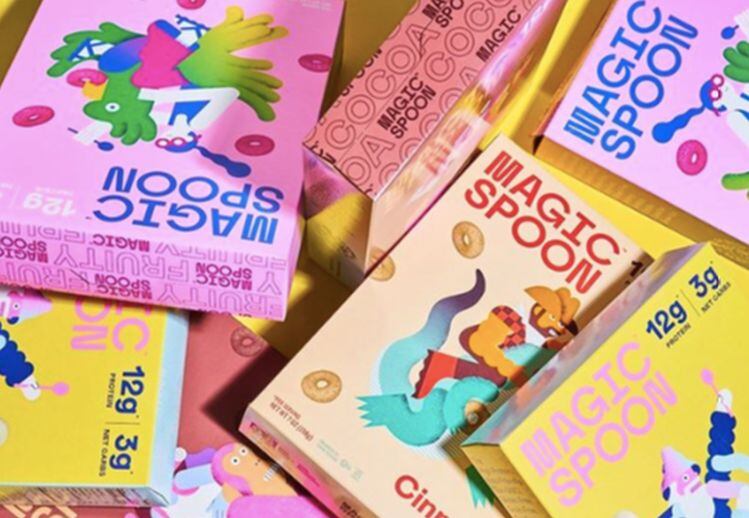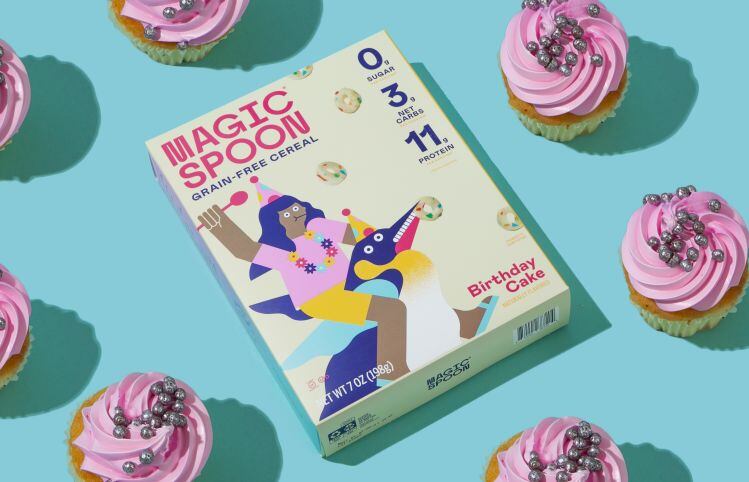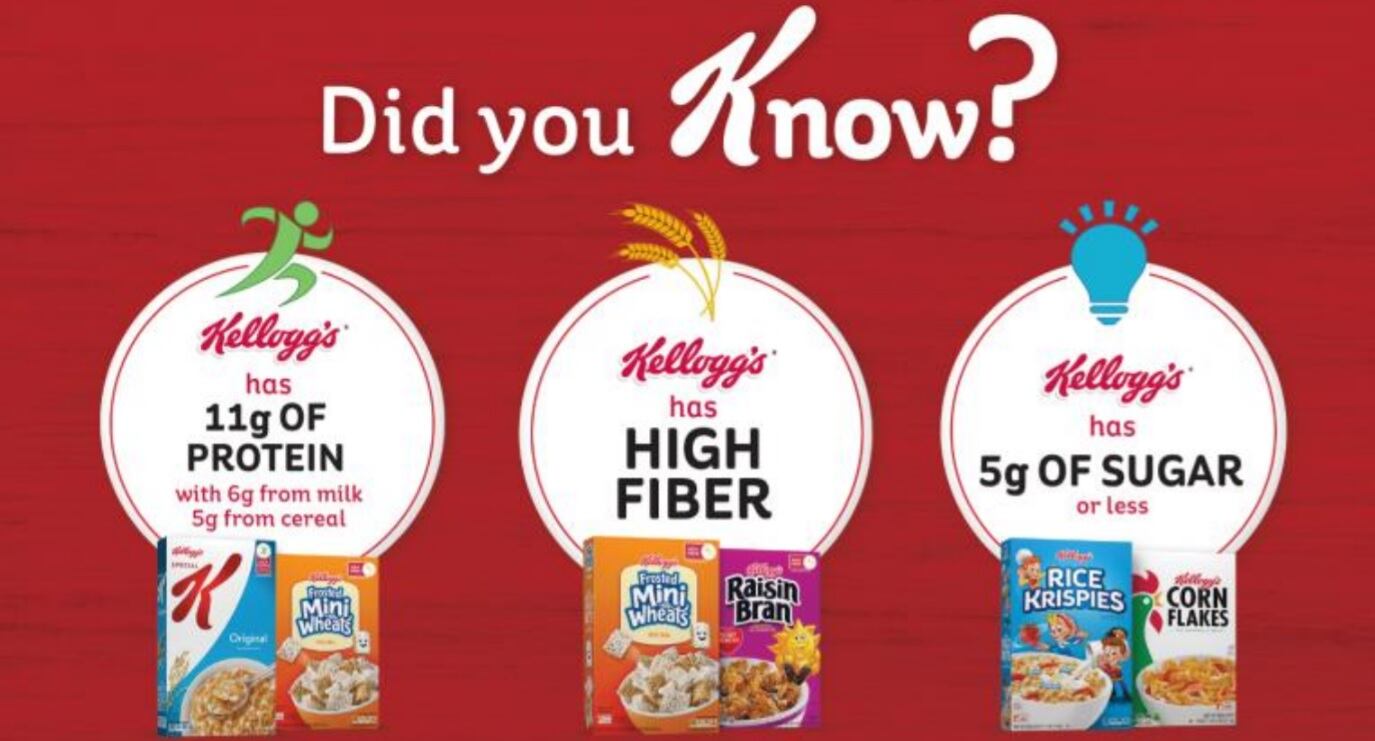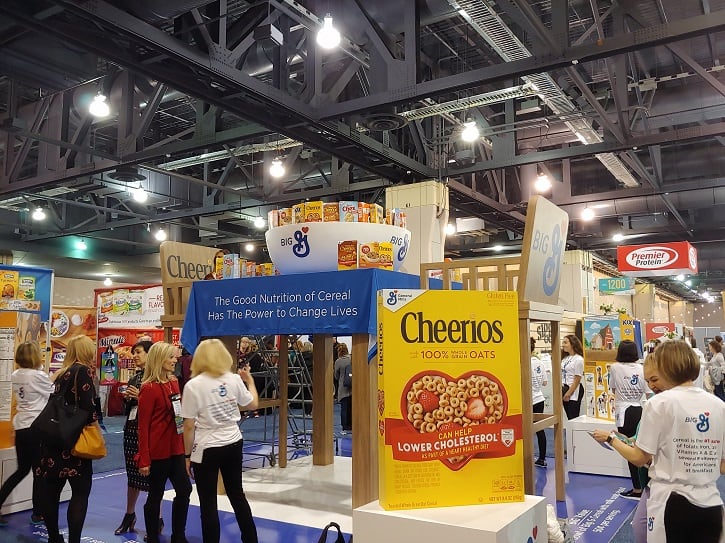That said, Gabi Lewis and Greg Sewitz – who launched the grain-free cereal brand this time last year – are careful not to make assumptions about how long this heightened demand will last, Lewis told FoodNavigator-USA.
“We were growing strongly before coronavirus, and we’ve seen a meaningful uptick in demand [during the pandemic]. But what no one knows about all the growth you’re seeing in online grocery shopping now is whether this will be reversed in six months or if we’re seeing a secular shift in behavior towards people being comfortable ordering groceries from the internet.
“We’re definitely in the latter camp, but no one really knows.”
‘We’re not going to fall into the trap of thinking that this increased frequency of purchasing will last forever’
At Magic Spoon, growth is coming from existing customers upping their spend, but most encouragingly from a lot of new customers discovering the brand for the first time, said Lewis.
“Existing customers are spending more because they are having breakfast at home every morning instead of just some mornings because they’re not rushing out of the house to go to work, and they’re maybe having Magic Spoon for an afternoon snack as well. But when they go back to work, they’ll probably go back [to previous habits], so we’re not going to fall into the trap of thinking that this increased frequency of purchasing will last forever.”
However, if the brand can retain new customers gained during these unusual times and continue to delight them, there will be long-lasting benefits for the business, he said.
Many new customers are discovering the brand organically, he noted, “We’ve seen a lot of organic influencer posts talking about favorite foods to eat at home that create joyful moments, for example.”
When it comes to paid customer acquisition, meanwhile, the situation is changing fast, so brands need to keep monitoring their activities to see what works.
“A few weeks ago advertising through Instagram ads was maybe a really good idea as people were spending more time at home on their phones. But now every brand has spotted that and people are fed up of seeing non-stop ads on their phones and maybe something that worked well a few weeks ago won’t work so well now.”

Launched a year ago by Gabi Lewis and Greg Sewitz - who created the EXO edible insect brand - Magic Spoon targets lapsed cereal consumers with products claimed to taste as good as Froot Loops, Frosted Flakes or Cocoa Puffs with a fraction of the net carbs (3g vs 21g, 24g and 23g respectively) and 6-12 times the protein (11g vs 2g, 1g, and 1g respectively).
Available exclusively via the Magic Spoon website, the cereals retail at just under $10 a box, (with a four-box minimum order for $39). Monthly subscribers receive a discount and free shipping, says Lewis, who notes that cereals are better suited to an online subscription model than most foods, because they are shelf-stable, light to ship with a reasonably long (12-month) shelf life, and consumed habitually.
The brand's latest innovation is Birthday Cake, a limited edition flavor to celebrate Magic Spoon's first anniversary.
‘We have been maniacally focused on a single product’
While some consumers are looking for online one-stop-shops that meet all of their needs, acknowledged Lewis, “Many of those platforms are experiencing meaningful delays and out of stocks right now, whereas we have been maniacally focused on a single product, so we’ve been able to ramp up production and stay in stock.
“We’ve also made sure we have options so we are not reliant on any one thing in our business, whether it’s manufacturing, logistics, key ingredients, or marketing channels.”
He added: “It’s not lost on us how lucky we are to be in a business delivering shelf-stable foods directly to people’s doors at this time.”

‘We didn’t realize the very real emotional pull that cereal has over so many people’
That said, Magic Spoon’s growth trajectory was established well before COVID-19 struck, said Lewis, who says he’s offering lapsed cereal consumers a chance to have their cake and eat it too with a product that delivers the taste and fun of childhood favorites such as Froot Loops or Cocoa Puffs with a fraction of the net carbs and 6-12 times the protein.
“We’ve been growing strongly before coronavirus and we’ve exceeded our wildest expectations on the demand side.
"We knew there was a market for cereal that tasted and looked like your childhood favorites that was an upgrade in terms of the nutritionals, but we didn’t realize there was this much demand. We didn’t realize the very real emotional pull that cereal has over so many people and the extent to which they are so excited and happy to bring it back into their lives.”
Lewis and Sewitz - who raised $5.5m in a seed funding round led by Lightspeed Venture Partners last fall – originally envisaged people much like themselves as Magic Spoon’s core consumers, that is, people that grew up with sugary cereals but ditched them in favor of protein bars, Greek yogurt or other options in adulthood.
However, it’s since become clear that the brand is resonating with a broader audience of families with kids as well as older adults looking for protein, he said.
‘Processed’ food?
While Magic Spoon’s blend of milk and whey protein isolates, coconut oil, tapioca flour, chicory root fiber, allulose, stevia and monk fruit isn’t exactly consistent with interest in less processed, more ‘natural’ foods delivering inherent nutrition, it delivers what many shoppers are looking for in a category most consumers accept is by definition pretty ‘processed,’ said Lewis.




